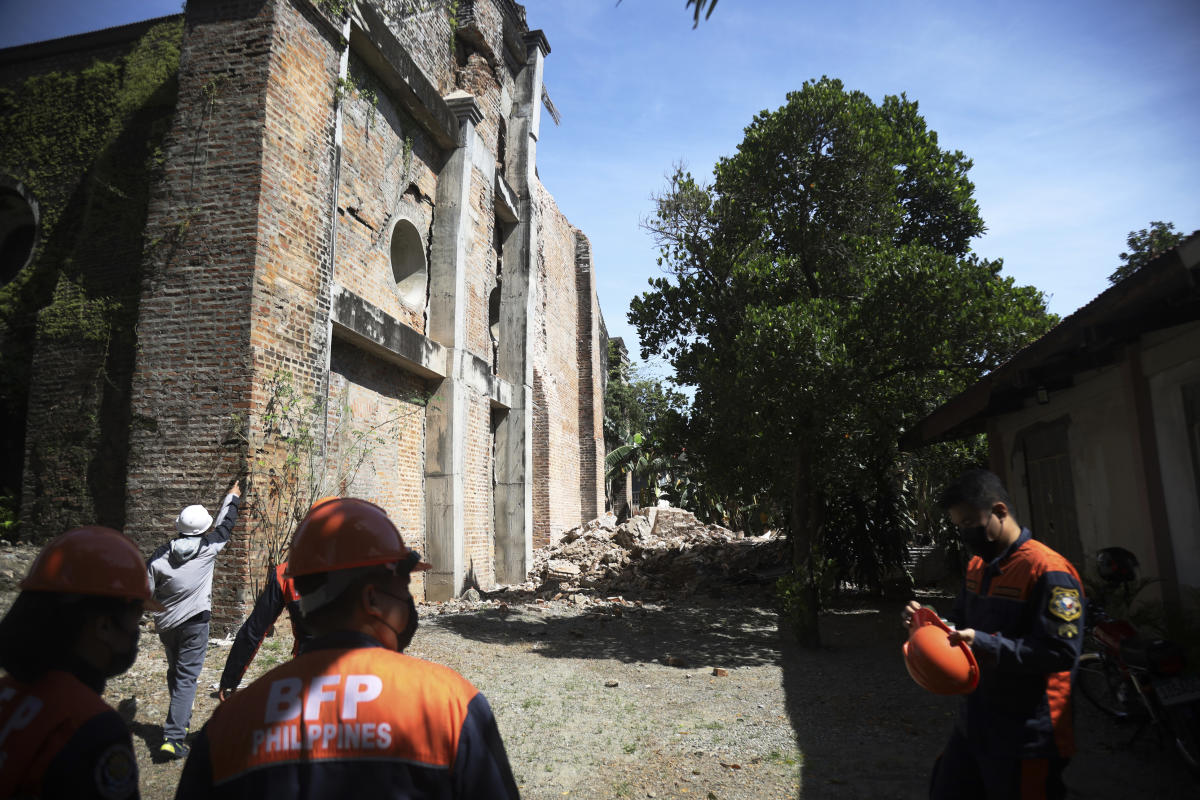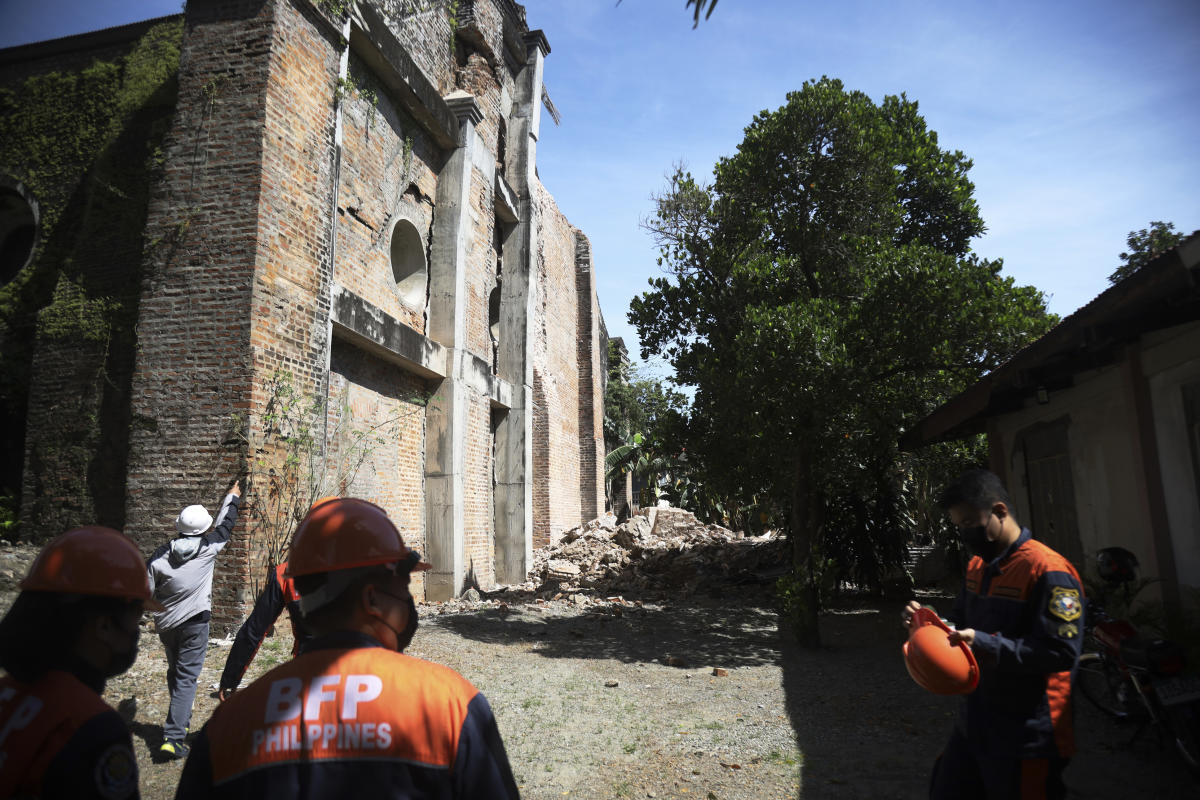
MANILA, Philippines (AP) — A strong earthquake rocked a large swathe of the northern Philippines, injuring at least 26 people and forcing the closure of an international airport and the evacuation of patients in a hospital, officials said Wednesday.
The Philippine Institute of Volcanology and Seismology said Tuesday night’s magnitude 6.4 quake, which was set off by movement in a local fault, was centered 9 kilometers (5 miles) northwest of Lagayan town in Abra province at a depth of 11 kilometers (7 miles).
The U.S. Tsunami Warning System said no warning or advisory was issued.
The quake was felt across a wide area of the main northern Luzon region, including in some parts of metropolitan Manila, more than 400 kilometers (248 miles) south of Abra.
At least 26 people were injured in Ilocos Norte, the home province of President Ferdinand Marcos Jr., where the international airport in the capital city of Laoag was ordered to close temporarily Wednesday due to damage from the quake, police and civil aviation officials said.
In Batac city also in Ilocos Norte, patients were moved out of the province’s largest hospital after parts of the ceiling in the intensive care unit fell as the building swayed. Medical consultation services were temporarily suspended as engineers assessed damage to the building, officials said.
Marcos Jr, who was in Manila, said authorities were inspecting roads and buildings, and welfare officials were providing help to affected residents in northern provinces. “Everyone is advised to keep out of tall structures,” the president said in a tweet.
In the town of La Paz in Abra, a century-old Christian church was damaged, with parts of its belfry collapsing and some walls cracked, littering the church’s grassy yard with debris, officials said.
At least two towns in Cagayan province temporarily lost electricity due to damaged power lines. A number of bridges and roads in outlying provinces were damaged.
In July, a magnitude 7 earthquake set off landslides and damaged buildings in Abra and other northern provinces, killing at least five people and injuring dozens.
In 1990, a magnitude 7.7 quake killed nearly 2,000 people in the northern Philippines and wrought extensive damage, including in the capital city of Manila.
The Philippine archipelago lies on the “Pacific Ring of Fire,” a region along most of the Pacific Ocean rim where many volcanic eruptions and earthquakes occur, making the Southeast Asian nation one of the world’s most disaster-prone.




